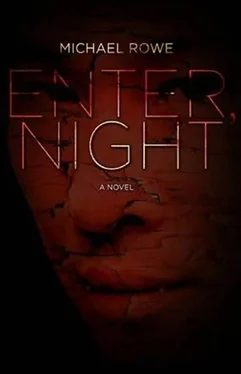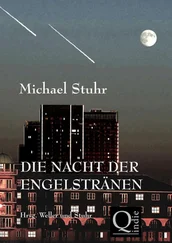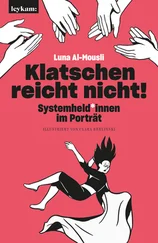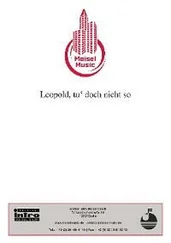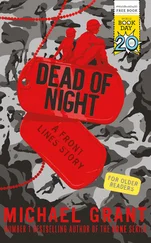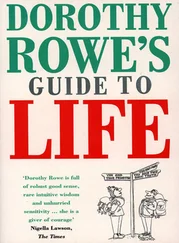When finally Jordan staggered and fell, dizzy from shock and pain, Weal turned him onto his back, almost lovingly. He kissed Jordan on the lips. Then he drew the knife across his throat, severing his carotid artery. The last thing Jordan felt were Weal’s lips against his throat, lapping at the blood that gushed from the wound.
Through dying eyes, Jordan looked up and tried to focus on his murderer.
Weal’s face became his own father’s face, full of deadened, murderous rage. Then it was Weal’s face again. Then his father’s. Then it was Weal’s again.
Directly behind Weal, a tenebrous, mist-like column was forming, vaguely human-shaped, but seemingly made entirely of darkness. Its head (or whatever part of it looked to Jordan most like a human head) was inclined towards Weal’s ear, and it was indeed whispering to him but, now dying, Jordan heard the whispering, too.
It said, Wake me .
In the end,dying proved different than anything Jordan had ever imagined it might be.
For one thing, it seemed to go on forever, long past the point where the pain had stopped. Past even the point where his heart stopped pumping and his brain died. As Jordan drifted above his body, he looked down at himself, bleeding out on the dirty floor of the bus, and felt the truest compassion he’d known. He saw himself as he’d never seen himself in any mirror while he’d been alive. He saw the fragility of his body and he realized how tenuously human life was contained by such brittle shells of flesh and bone under the best of circumstances.
Dimensions of brilliance exploded outward as he continued to rise.
Past, present, and future fused together in a continuum. There were no more secrets. Every truth of the world was laid bare to the dead.
Jordan knew, for instance-and not without satisfaction-that his father would die of pancreatic cancer two years from now, in 1974. He would go quickly, but not without terrible pain. He knew that his mother would remarry, this time to a man who would cherish and care for her. He also knew that, late at night, as she lay in bed with her gentle, loving husband sleeping beside her, she’d think of Jordan’s father and his cruelty and wonder if that wasn’t, in its own way, real love. In those moments, she’d glance over at her sleeping husband and hate herself for wishing he wasn’t just a bit harder, just a bit rougher, the way a man ought to be. Then she’d remember the terror, and she’d forgive herself for those treacherous thoughts. She’d lay her head on his chest while he gathered her in his arms till she, too, slept, dreaming of Jordan, telling herself over and over again that he was somewhere safe, living his life, and knowing in her mother’s heart that he was gone.
He drew comfort from the knowledge that Fleur would leave Don before the baby was born and that the violence that had marked Jordan’s life would never mark that of Fleur’s son.
Jordan continued to rise.
He saw that the dead were everywhere, masses of them, like a vast eldritch ocean that stretched in every direction. Men, women, children- even animals. He laughed with revenant delight. The sound of his laughter fell in a shower of ectoplasmic blue sparks in the ether of this strange new in-between dimension where everything and nothing was the same as it was in life.
When Jordan was alive he’d once asked a priest about whether or not dogs had souls. His own dog, Prince, had died from eating poisoned bait in the woods the previous week, and Jordan had been inconsolable. The priest assured him that animals had no immortal souls and reprimanded him for being stupid enough to believe they did. Jordan had cried, but he suspected the priest was wrong-or lying. For years afterwards, he’d felt Prince’s presence constantly when he was alone, especially at night in his room where the dog had always slept.
Here the dead crowded the desolate country road where Weal had awkwardly parked the bus, peering curiously through the windows, tapping noiselessly on the glass in an endless, one-sided attempted dialogue with the living. Finding none inside the bus, they scampered along the roof and launched themselves into the night like spectral fireflies in search of living receivers who could hear their voices. They looked as they did in life, and in death seemed neither overjoyed to be free of their mortal bodies nor particularly tormented. No wings, no harps, no robes. They just… were .
Jordan felt the warm press of millions of souls caressing his own as they passed through him. He realized now, as he never had when he was alive, how not alone he had always been. W hat a comfort it might have been to know that, he thought as he reached out to receive them.
As Jordan was absorbed into the massive vortex of spiralling black light, he looked down one last time.
Below him, in the road, Richard Weal had stepped out of the bus with his hockey bag full of bloodstained picks and hammers and saws. He withdrew a bottle wrapped in a dirty towel. Stuffed into the bottle’s opening and held in place by the stopper was a wick made of cloth. Weal took a lighter out of his jacket pocket and lit the wick. The flame glowed brilliant blue. He hurled the bottle through the door of the bus. It shattered on impact, igniting a fireball that engulfed the interior of the bus in a matter of seconds. Even before the gas tank blew, Jordan knew his body was burning, and that when the authorities found the scorched out hulk hours later, there would be nothing left of him to identify.
Riding Weal’s shoulders, the great black shape that only the dead could see pressed close to him, whispering to him, rippling and undulating with malignant purpose as Weal picked up his hockey bag and began to walk.
Jordan knew-as he knew everything now, including the terrible end of Weal’s story-that there would be unlocked houses along the route to Parr’s Landing. There would be trusting people. There would be cars driving north with passengers who felt sympathy for a lone man hitchhiking home to a northern mining town to be with his sick daughter or his dying wife. Weal’s bag of hammers and knives and picks would do the rest. All the while, the great black shape folded its wings around Weal and urged him forward.
And then, the part of Jordan Lefebvre that was still tethered to his experience of dying flickered out entirely, his essence becoming one with the souls around him, passing completely from the world of the living into the gloomy country of the dead.
Monday, October 23, 1972
That morning at theBlue Heron Motel-thirty miles outside of Sault Ste. Marie on the edge of the northern Ontario bush country, near the village of Batchawana Bay-Christina Parr woke just after sunrise from a dream of her dead husband, Jack. It was a widow’s dream-an inchoate dream of the deepest and profoundest longing. She woke from it with her arms outstretched as though to receive an embrace.
Christina knew that if either of the other two occupants of the motel room had asked her to relate the dream’s narrative to them, she would have been at a loss. The language of her grief was private and even now, after almost a year, Christina was still painfully learning its vocabulary and orthography.
She raised herself on her elbow and looked down at her daughter, Morgan, lying next to her. Asleep, buried in the blankets with her black hair ( Jack’s hair ) half-covering her face, Morgan looked younger than fifteen. Lightly and tenderly, Christina smoothed it out of Morgan’s face without waking her. Across the room, in the other bed, her brother-in law, Jeremy Parr, snored softly, his bare arm outside the blanket, pulling it in to his body as though he were a cold, small child.
Читать дальше
